- Home
- Tanya Anne Crosby
MacKinnons' Hope: A Highland Christmas Carol Page 2
MacKinnons' Hope: A Highland Christmas Carol Read online
Page 2
He cried out, pleading for his life. “Eleanore! Nay!” This could not be real. His shoulders scrunched as he backed into the solar, retreating toward the hearth. Behind him, flames exploded at his back. He could feel the heat straight through his cloak.
“Oh, but I am,” she said, as though she’d somehow read his thoughts, her voice ever so sweet—as though, in fact, sweetness could come from such a face with raging orbs for eyes. “As real as those flames beating at your back.”
Behind him, Hugh’s cloak ignited. He shrieked and quickly shrugged it off his back.
Eleanore smiled thinly. “As real as the flames you will feel… if you do not mend your ways.”
At Hugh’s feet, his cloak continued to burn, the scent of scorched fur unmistakable, like the scent of burning flesh. The entire room grew blistering hot, when only moments before the icy wind had nearly numbed his fingers to the bone.
“Hell awaits you, Hugh, but ’tis one of your own making.”
He would have stepped away from her, but now he was trapped. There was no way out. His voice trembled as he spoke. “What can you mean?”
“I needst not say, ye already know. But, my dearest Hugh, if ye must see, then take my hand…”
Hugh fervently shook his head. “Nay!”
Silently, insistently, the ghostly Eleanore held her hand out, a flickering blue extension of herself that wavered between flesh and bone. The thought of touching that hand horrified Hugh to his very soul.
But, nay, this could not be real, he reassured himself. It was only a dream—a terrible, horrible dream.
“Come with me,” Eleanore beseeched, her voice a singsong plea.
“Nay,” Hugh refused. And yet his feet, they did move, as though summoned by her will. He slid the distance to where she stood, so close that her burning hand remained easily within reach. “Please,” he begged, afeared now in earnest.
“Come with me,” she demanded again, her voice as dulcet as her song had been.
Despite himself, Hugh gave his wife a quivering hand, half expecting to be dragged down into the depths of Hell.
But she did not take him there; instead, she took him somewhere else… where Hugh stood half-dressed against a bitter wind. He made to pinch his cloak together against the weather, but it was no longer hanging upon his shoulders and the wind forced its way past his flesh, straight to his bones.
He recognized this place.
It was Aldergh’s cemetery, but the chapel that had once stood beside it was now demolished. All that remained were bricks stained with black ash. In the distance, Aldergh Castle was no more.
And there, at his feet, lay a solitary tombstone, overturned, evidently forgotten amidst the weeds. He couldn’t quite read the inscription. But behind that tomb lay row upon row of his ancestors’ graves, none lay next to it, and none in advance of it. Beyond that lone gravestone were only wicked looking briars.
“Tis cold,” he complained, giving the ghost a sideways glance.
Eleanore smiled a knowing smile. “Colder yet ye’ll find ye be, Hugh FitzSimon, though I shall give ye sunshine if ’tis what ye please.”
Without ever moving Hugh found himself in a place he’d not visited in many years: Chreagach Mhor. It was springtime now—but how could that be?
Children laughed along the bluff-side, racing through rows and rows of dancing blue bonnets. One. Two. Three. Four. They came running past—and through him. One little boy ran directly through Hugh, laughing as he ran.
Hugh spun about to watch them race away, toward an old stone keep at the top of the hill—the ancient seat of the MacKinnon lairds.
Soaring high upon a gently sloping hill, Chreagach Mhor was a rugged fortress seated upon a violet mantle. The heather bloomed a brilliant violet against a vivid carpet of green and scattered across the lush landscape, rugged stones stood like proud sentries to guard the mammoth tower. Small thatch-roofed buildings spattered the hillside.
Another boy came racing past, perhaps this one no more than twelve. “Mother says to come along,” he shouted at the escaping girls. “Tis time to sup.”
The girls all squealed as the boy reached the hindmost runner, trying in vain to grasp the little girl’s golden hair.
“Constance!” the boy screamed, when the child managed to escape, and then all the girls laughed and scurried away.
Was this some form of hell, to glimpse a life he was never privy to?
Once again, Hugh FitzSimon slapped his burdened chest. “Dear Lord, Eleanore! Am I already dead?”
In truth, he did not feel so well this eve.
Eleanore smiled yet again, not quite warm, not quite cold. Hugh could barely look at her for the brightness of her eyes. “Not yet, Hugh. Not yet.”
And then they were no longer standing upon the hillside. They were in a barren field. It was sunny still, but now it seemed they’d somehow happened into the middle of a celebration, surrounded by happy folk the likes of which Hugh had never beheld.
His wife reappeared by his side, not alive, not quite dead. “Is this for real?” he asked. “What of ye? What do ye be?”
The blue glow in Eleanore’s eyes dimmed—just enough so that he could spy the true color of her eyes: hazel green. “For love of ye, I come bearing gifts.”
Hugh screwed his face. “From beyond the grave?”
Eleanore nodded wistfully, looking more like herself than the specter she had been. “Love, you see, is quite the hopeful thing.”
Hugh remained confused. “B-But I did not love ye well enough!” he said.
“This I know.”
“And yet ye loved me still?”
She nodded again and bade him to look about once more, so he could see what she had brought him there to see.
And there she was—his daughter, Page. Older now, with soft tendrils of sun-kissed hair framing a lovely grown-up face. After all these many years, she’d kept her beauty—just like her lady mother. But Hugh peered from mother to daughter, and realized with a start that Page had more of him than she had of Eleanore.
She had his face, not her lady mother’s.
Amazed by the sight of his daughter, he watched her hug a little girl—his granddaughter, Hugh supposed. And then another child came to tug her skirts. With a smile, Page bent to meet the little girl’s gaze. The two spoke at length, after which the child hugged her neck and went racing away, laughing with unrepressed joy. By now, Hugh’s heart pained him immensely. He could watch no more.
Dear God, he could watch no more!
Cruelly, Eleanore pushed him closer. He glided uphill, all the easier to eavesdrop on his daughter’s conversation with her laird husband. At first, Hugh was afeared they might spy him.
“You spoil them overmuch,” Iain complained.
Hugh waved a hand before their faces. It swished through the air nebulously, passing through the MacKinnon’s short gray beard.
They could not see him.
“And why not?” Page asked her laird husband, who by the way, had kept a hand about her waist, as though he could not quite bear the thought of losing touch. “I will not treat my children the way my father treated me.”
Page’s words were like daggers cast unerringly at Hugh’s heart. He writhed a bit in pain.
The MacKinnon drew his wife close. “There is very little danger in that, my love.”
“A single tart for each will surely not break us,” Page maintained, and then she cast her husband a worried glance. “Do you think there’ll be enough to last the winter long?”
“Dinna worry, Page. The winter will be gone afore ye know it, and then come spring we’ll fill the stores. We’ll find a way. We always do.”
Hugh turned to Eleanore and whispered, “What happened here?”
Eleanore placed a finger to her lips, bidding him listen awhile longer.
Hugh glanced about the field, realizing suddenly that he was standing, not in the middle of a celebration as he’d originally imagined, but in the midst of men and wome
n hard at work, rebuilding barns and clearing fields—and yet their smiles and laughter were scarcely dimmed by this fact. The summer blue bonnets were all dead now. The ground was brown and charred. And yet men and women joked and laughed and traded barbs.
Fire?
“Good day to ye, my lady,” said a woman passing by.
“And to ye,” Page greeted the woman with a wave.
“Bless ye mistress for givin’ my girl a sweet tart.”
“’Tis my pleasure,” Page assured the woman, and then she said beneath her breath, so that only her laird husband might possibly hear, “If only everyone were so easily pleased.” Nibbling pensively at her bottom lip, she turned her gaze across the meadow. After a moment, she asked her husband, “What shall we do about him?”
Hugh followed his daughter’s gaze and found her watching a young man, hard at work, lifting up beams for a peasant’s roof. “It pains me to see him at odds.”
“For that, we may thank your Da,” the MacKinnon suggested.
Hugh’s cheeks burned hot.
What had he done now? Of course, he would be their demon, their ogre. He was the monster who stole in at night to steal little children from their beds—
Except that he had.
Not Hugh precisely, though of course, he was the one who’d detained young Malcom for the king. FitzSimon studied the youth a bit closer, realizing with a start that he recognized the face. It belonged to none other than the child he’d once harbored within his home.
Malcom MacKinnon worked side by side with his kinfolk, his shoulders shaped by the weight of too many heavy loads. He was a strapping young lad, Hugh thought—just the sort of man he’d always envisioned to take his place. Too bad he was not of Hugh’s blood.
How much time had passed? He counted upon his fingers. Eleven years since the day he’d cast his daughter away. Ten since he’d last beheld her face. And Malcom, he must now be about seventeen.
His gaze sought and found the children across the field. They were all seated together, shoving sweet tarts into their faces. His gaze returned to his daughter—the child he’d denied for far too long. He longed to hold her in his arms. Had she ever in her miserable childhood enjoyed a single sweet tart? He didn’t know, couldn’t recall.
His throat felt too thick to speak, and yet he tried. “Do they have enough—” clothes, food, what else— “to last the winter long?”
Eleanore slowly shook her head.
“What will they do? What happens now?”
Without a word Eleanore swept her hand along the landscape, and suddenly they were standing in the same field at twilight. The hillside fell silent; no laughter echoed through the meadow. He had the sense that many years had passed. The landscape was much changed. Like Aldergh, the castle on the hill stood no more. Stone by stone it had been dismantled, until all that remained was a stone footprint upon the hill, guarded by half turned stones. The land was barren, overgrown with thistle. The barns were gone. No more peasant homes remained.
Were their fates somehow tied to his?
Hugh reconsidered the gravestone upon Chapel Hill—and then, as though he’d conjured it, he was standing over the tombstone once again, with Eleanore flickering like a candle by his side. He shivered beneath a gentle snowfall. A single flake fell upon his beard. Beside him, his pale dead wife wept a crystal tear. It fell to the ground, melting into the snow. Hugh peered down at the tombstone lying disfigured at his feet, one corner lopped off as though someone had taken a hammer to the stone. The words it bore finally brought him to his knees…
Etched in soft stone—not even deep enough to endure the years—was carved: Here lies Hugh FitzSimon, last heir of Aldergh Castle. The year engraved upon the stone was 1135, the month, December.
Eleanore spoke softly beside him. “Knowing is my gift, Hugh. While there is breath there is yet hope…”
Panic seized him. “What must I do? Tell me!” He lifted his hands in supplication. “Anything, Eleanore, please tell me what to do!”
Much diminished now, Eleanore’s light appeared weaker. She touched his shoulder gently, so delicately that Hugh might have mistaken her touch for a snowflake.
“Before the fire burns low in the last hour of the last day before the winter solstice, you must change your heart, Hugh FitzSimon.”
“’Tis already changed, Eleanore! I am changed. Which fire? Please! Tell me, please?”
Eleanore spoke softer yet as she began to fade away. “Unattended, love is like a flame, burning lower day by day.”
“Eleanore,” Hugh pleaded. She was barely visible now. He reached out, trying to catch her to him, but his hands fell away from her translucent form.
“You will know love when ’tis returned,” she said, her voice drifting away.
And then Hugh was kneeling in the cold dark corridor of his home, left wretchedly alone. His wife was gone. Stricken with grief, he rose quickly from his knees in the empty silence of his hall and bolted into the solar.
Despite that he had already blown it out, the candle on his desk sat burning still, smoke curling up toward the ceiling as the tallow burned dirty and low.
What day is this?
Hurrying to the desk, Hugh pulled the newly delivered parchment from his belt, unrolled it swiftly and peered down at the writing, drafted in the studied hand of a Godly man. Illumined by the candlelight, the text changed before his eyes, as though written by some unseen hand. It now read:
“In the name of the deceased, lady ELEANORE OF ALDERGH Baron Hugh FitzSimon, dead this SIXTH twenty-second day of December in the year of our lord 1135…”
Was this a waking dream?
Behind Hugh, the hearth fire raged no longer, but there upon the floor laid the charred remains of his cloak. Proof that he was not mad. A sudden gust, like a ghostly sigh, lifted the ends of his gray mane and the candle on the desk flickered softly. Hugh hurriedly cupped his hands about the flame, protecting it from going out.
Before the fire burns low in the last hour of the last day before the winter solstice, you must change your heart, Hugh FitzSimon.
“Do not forsake me, Eleanore!”
He had so much to do, and so little time to do it!
Chapter 1
Chreagach Mhor, Scotland, December 21, 1135
The fire drove them from their beds in the wee hours of the morn. The landscape raged like an inferno, consuming crops and trees, setting fire to the night itself.
Thankfully, it spared the majority of the villagers’ homes, as well as the keep and some of the surrounding buildings. All but one of the storehouses had been reduced to ash. For nigh on a week, the clan had labored through a warm spell that would very soon end. Unseasonably temperate for the Ides of Winter, it afforded them a rare opportunity to work from sunrise beyond sunset.
At seventeen, Malcom MacKinnon was as braw as any man, able to work his share and then some. And so he did. Theirs were unforgiving lands, in troubled times and a Scotsman hadn’t the luxury of sitting about on his rear, ordering servants about. He’d witnessed such behavior only once in his life—years ago, while being held by Hugh FitzSimon. Thank the Gods his stepmother was naught like her odious Da.
Despite that Page wasn’t Malcom’s true mother, she was nonetheless the light of his life. His father worshipped her as well. She could do no wrong—not in Malcom’s eyes, nor in his father’s. She worked harder than any Highland lass, and harder yet than some of the men.
He eyed auld Angus, seated once more on his pimply auld rump, drinking liberally from his uisge flask. When it came to Seana’s uisge that man had a tolerance none could rival. Angus claimed it loosened his joints, but from what Malcom could tell, it simply loosened his tongue and then glued his arse to the bench, from whence he might never again rise.
He watched Angus now, trying to get up, and half hoped he wouldn’t make it. Judging by the way he wavered and then fell upon his rear at least three times before making it to his knees, he would be a far greater liability
returning to work.
Shaking his head, Malcom returned his attention to repairing the roof.
So much damage was done, but the mood was hopeful and the help of their neighbors was much appreciated. He barely recalled a time when the clans were at war. Now it was more like than not that MacLean brats were running about, stealing tarts from their windowsills and Brodie brothers were lolling around, draining his father’s ale—and then their willies onto their bushes.
The only one thing that hadn’t changed much in all these years was that his grandfather—Dougal MacLean—kept mostly to himself. Despite that the old man had made peace with his only remaining daughter, he couldn’t seem to bring himself to extend that peace to Malcom’s Da—and by virtue of that fact, Malcom as well.
MacLean still blamed Malcom’s father for his eldest daughter’s unfortunate death, but rather than acknowledge that he had had some part in that, and that both Malcom and his father were bound to share his grief, he forsook them both and kept to himself. The last time he saw Old Man MacLean was at his daughter Alison’s wedding.
MacLean had no sons, and rather than see his legacy continued through his grandson, or even his daughter, he was prepared to let his lands go fallow. Already, his clansmen had abandoned him to serve the Brodies. He was but a grumpy old man, sitting alone in a dark house—or at least that’s how Malcom imagined him and he felt aggrieved by the fact.
But although the clans were not so antisocial as Dougal MacLean, perhaps the biggest surprise of all was that Malcom was taking orders from Gavin Mac Brodie’s wife—a dún Scoti maid that Gavin wed some years past. Catrìona Brodie, like Page, worked harder than most of the men, though in her case, her skill was rather surprising. Catrìona could weave a thatch roof as tight as you please. She could design a hut with greater skill than any draftsman, and she could lay bricks with a keener eye and tighter seams than any bricklayer. But, be damned if she wasn’t a bossy wench, taking over their crews from the instant she’d arrived on the scene.

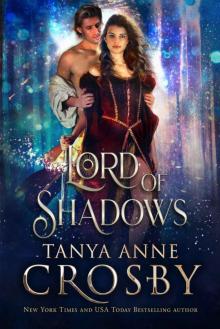 Lord of Shadows (Daughters of Avalon Book 5)
Lord of Shadows (Daughters of Avalon Book 5)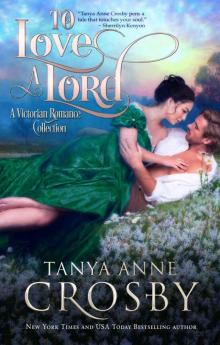 To Love a Lord: A Victorian Romance Collection
To Love a Lord: A Victorian Romance Collection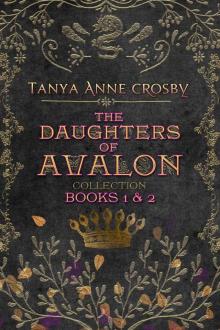 The Daughters of Avalon Collection: Books 1 & 2
The Daughters of Avalon Collection: Books 1 & 2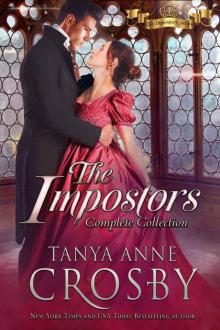 The Impostors: Complete Collection
The Impostors: Complete Collection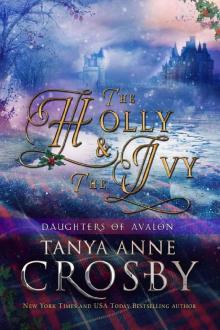 The Holly & the Ivy (Daughters of Avalon Book 2)
The Holly & the Ivy (Daughters of Avalon Book 2)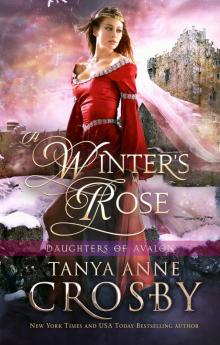 A Winter’s Rose
A Winter’s Rose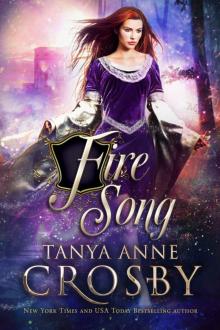 Fire Song (Daughters of Avalon Book 4)
Fire Song (Daughters of Avalon Book 4)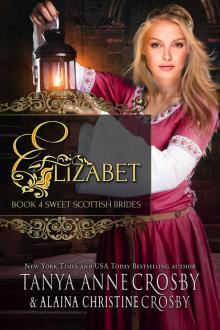 Elizabet
Elizabet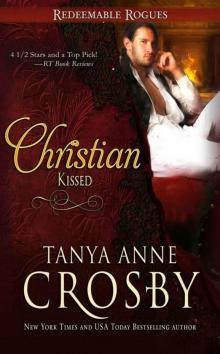 Kissed; Christian
Kissed; Christian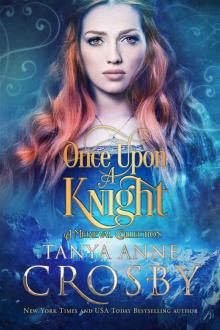 Once Upon a Knight
Once Upon a Knight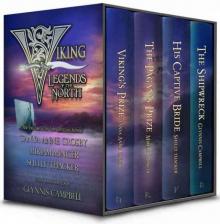 Viking: Legends of the North: A Limited Edition Boxed Set
Viking: Legends of the North: A Limited Edition Boxed Set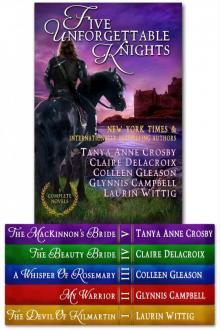 Five Unforgettable Knights (5 Medieval Romance Novels)
Five Unforgettable Knights (5 Medieval Romance Novels)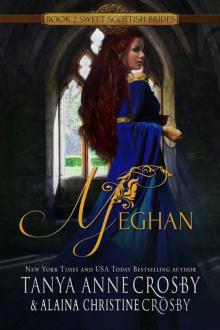 Meghan: A Sweet Scottish Medieval Romance
Meghan: A Sweet Scottish Medieval Romance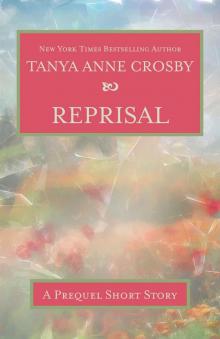 Reprisal: A Prequel Short Story to REDEMPTION SONG
Reprisal: A Prequel Short Story to REDEMPTION SONG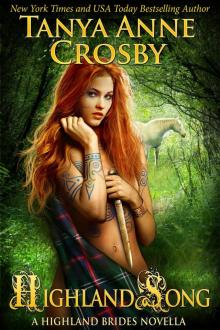 Highland Song
Highland Song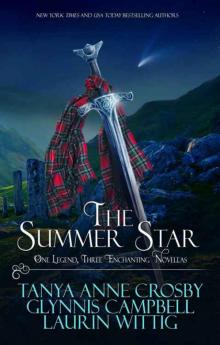 The Summer Star: One Legend, Three Enchanting Novellas (Legends of Scotland Book 2)
The Summer Star: One Legend, Three Enchanting Novellas (Legends of Scotland Book 2) Once Upon a Kiss
Once Upon a Kiss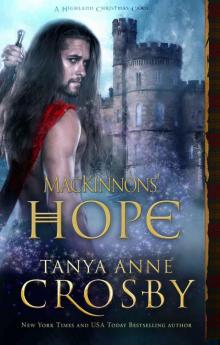 MacKinnons' Hope: A Highland Christmas Carol
MacKinnons' Hope: A Highland Christmas Carol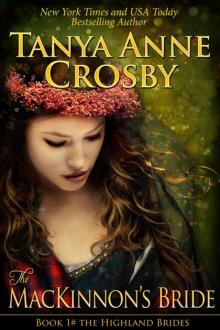 The MacKinnon's Bride
The MacKinnon's Bride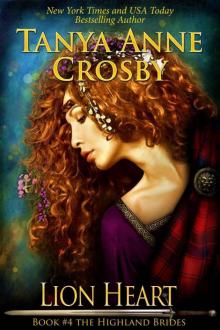 Highland Brides 04 - Lion Heart
Highland Brides 04 - Lion Heart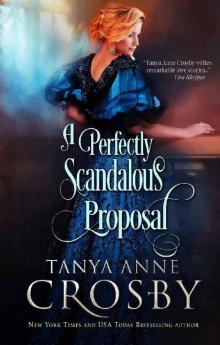 A Perfectly Scandalous Proposal (Redeemable Rogues Book 6)
A Perfectly Scandalous Proposal (Redeemable Rogues Book 6) Reprisal
Reprisal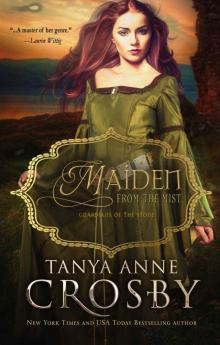 Maiden from the Mist (Guardians of the Stone Book 4)
Maiden from the Mist (Guardians of the Stone Book 4)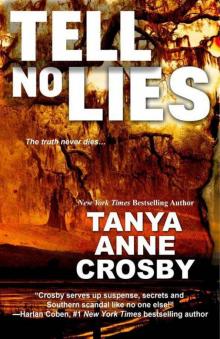 Tell No Lies
Tell No Lies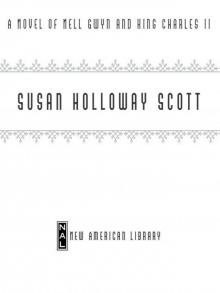 The King's Favorite
The King's Favorite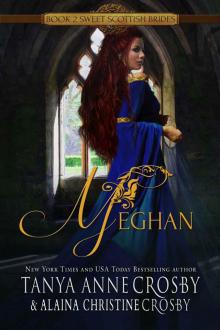 Meghan: A Sweet Scottish Medieval Romance (Sweet Scottish Brides Book 2)
Meghan: A Sweet Scottish Medieval Romance (Sweet Scottish Brides Book 2)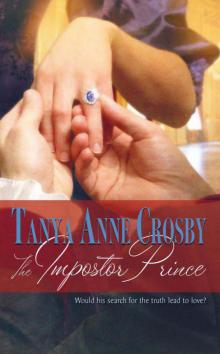 The Impostor Prince
The Impostor Prince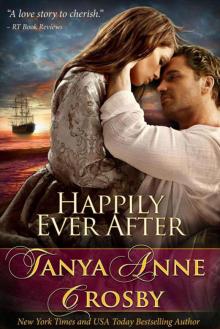 Happily Ever After
Happily Ever After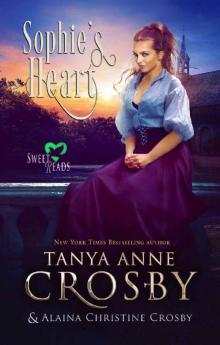 Sophie's Heart: Sweet Historical Romances
Sophie's Heart: Sweet Historical Romances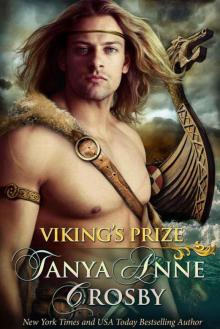 Viking's Prize
Viking's Prize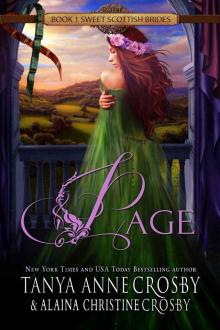 Page
Page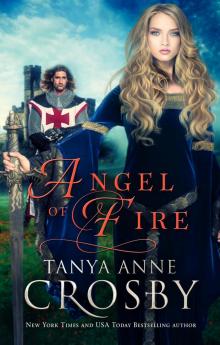 Angel of Fire
Angel of Fire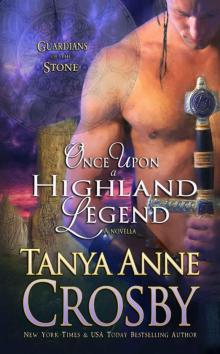 Once Upon A Highland Legend
Once Upon A Highland Legend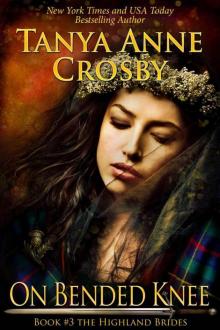 Highland Brides 03 - On Bended Knee
Highland Brides 03 - On Bended Knee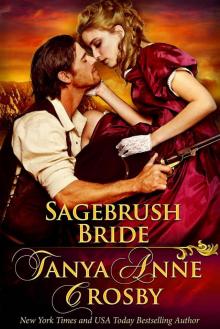 Sagebrush Bride
Sagebrush Bride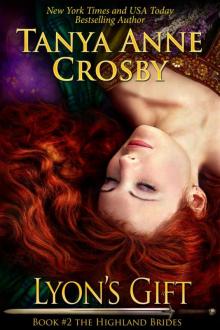 Lyon's Gift
Lyon's Gift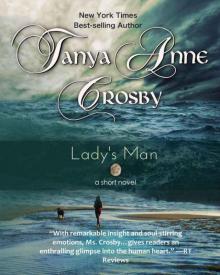 Lady's Man
Lady's Man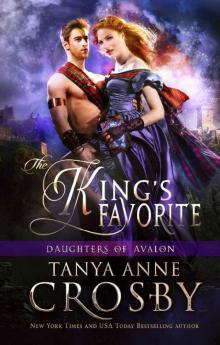 The King's Favorite (Daughters of Avalon Book 1)
The King's Favorite (Daughters of Avalon Book 1)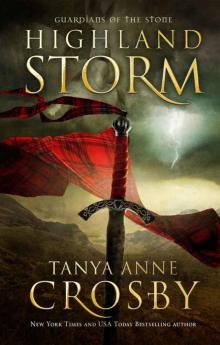 Highland Storm
Highland Storm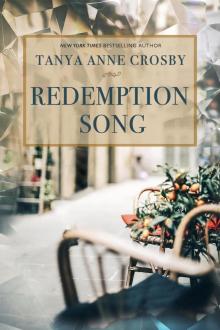 Redemption Song
Redemption Song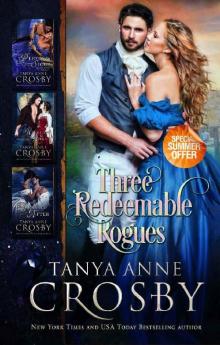 Three Redeemable Rogues
Three Redeemable Rogues